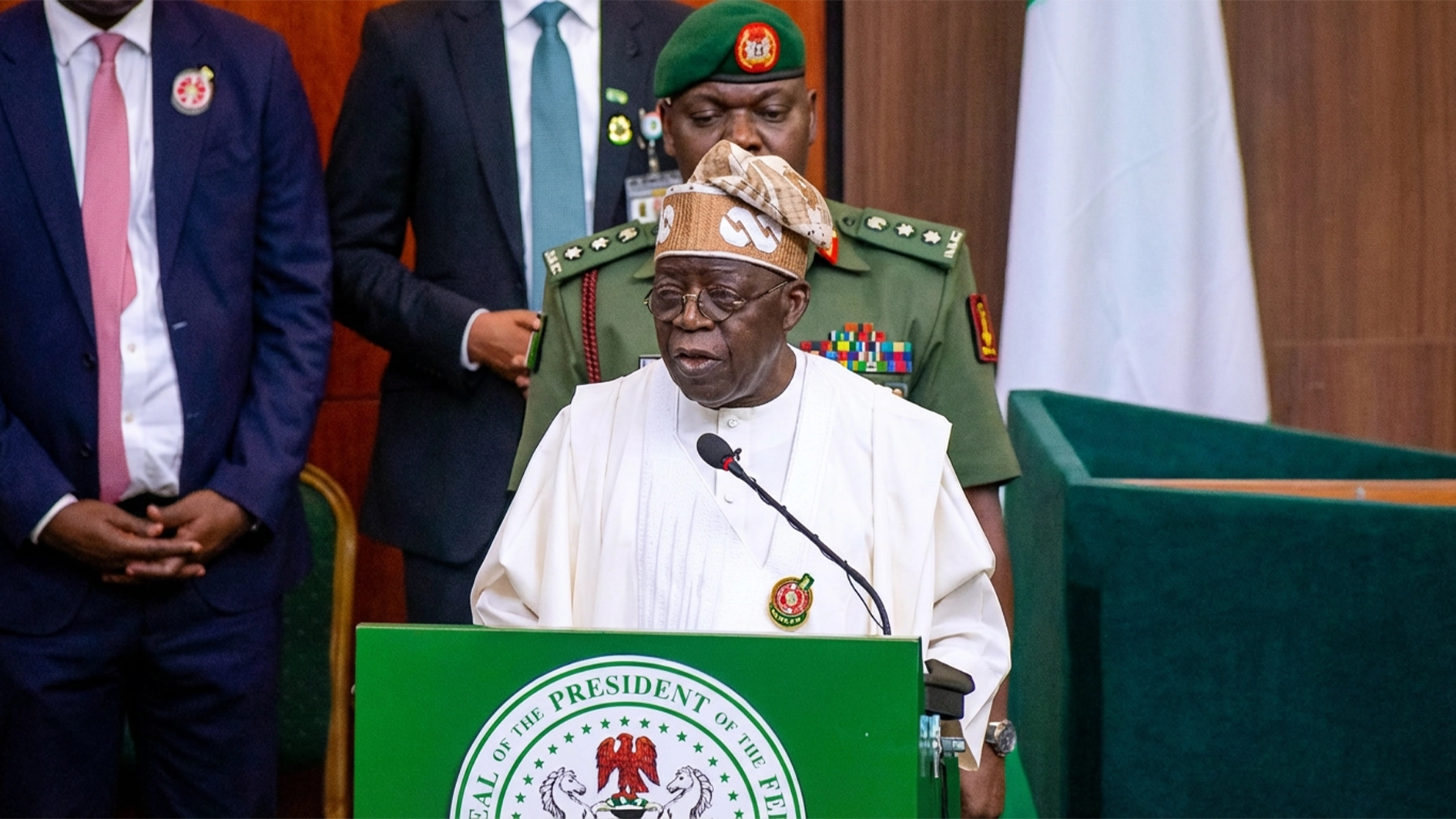
In a pivotal address to the nation, President Bola Tinubu outlined a comprehensive plan to navigate Nigeria through its current challenges. Amidst the backdrop of protests and economic difficulties, the President highlighted his administration’s commitment to revitalising the economy and empowering the youth. Two particularly commendable aspects of his address were the strategic economic reforms and the comprehensive youth empowerment programs.
President Tinubu’s address underscores his administration’s commitment to implementing necessary economic reforms. A key highlight was the removal of fuel subsidies and the unification of multiple foreign exchange systems. These actions, though initially painful, were essential to eliminating the economic distortions that had plagued Nigeria for decades.
The President explained that these measures were necessary to reverse the longstanding economic mismanagement and to block the profits that smugglers and rent-seekers had been siphoning off the economy.
In the past 14 months, these reforms are beginning to bear fruit and will eventually achieve their objectives. Government revenues more than doubled, reaching over 9.1 trillion Naira in the first half of 2024 compared to the previous year, thanks to efforts to block leakages, introduce automation, and mobilize funding creatively without additional burden on the populace. This financial freedom has enabled the government to allocate more resources to essential social services like education and healthcare. For instance, state and local governments have received the highest allocations ever from the Federation Account, empowering them to better serve their communities.
Moreover, the President noted that these reforms had significantly reduced Nigeria’s debt service burden, freeing up funds for investment in infrastructure and social programs. This pragmatic approach to economic management reflects a dedication to creating a sustainable and resilient economic foundation for Nigeria.
Another notable aspect of President Tinubu’s address was the emphasis on youth empowerment. Recognising the critical role of young Nigerians in shaping the nation’s future, the administration has launched several initiatives aimed at providing opportunities and support for the youth.
The establishment of the student loan scheme is a pivotal part of this effort. To date, 45.6 billion Naira has been processed for payment to students and their respective institutions. This initiative ensures that financial constraints do not hinder the educational aspirations of Nigerian youths. Additionally, the President announced the creation of the Consumer Credit Corporation, with over 200 billion Naira allocated to help Nigerians acquire
essential products without immediate cash payments. This move is expected to reduce corruption and eliminate opaque transactions, making life easier for millions of households.
Furthermore, the administration has secured $620 million under the Digital and Creative Enterprises (IDiCE) program, which aims to empower young people by creating millions of IT and technical jobs. This initiative includes the 3Million Technical Talents scheme, which is designed to make Nigerian youth globally competitive. Despite the unfortunate vandalism of a digital center during recent protests, the government remains committed to this vision.
The Skill-Up Artisans Programme (SUPA), the Nigerian Youth Academy (NIYA), and the National Youth Talent Export Programme (NATEP) are additional initiatives aimed at equipping young Nigerians with the skills needed for the modern workforce. These programs, alongside significant financial support to expand livelihood opportunities, underscore the administration’s commitment to fostering a generation of skilled and empowered youths.
President Bola Ahmed Tinubu’s recent broadcast was not just a response to immediate challenges but a comprehensive presentation of his administration’s strategic vision for Nigeria’s future. By focusing on essential
economic reforms and empowering the youth, President Tinubu is laying the foundation for a more stable, prosperous, and inclusive Nigeria.
These initiatives reflect a deep commitment to governance that balances economic pragmatism with social responsibility, offering a beacon of hope for all Nigerians.
The advantages of government-sponsored training programs targeting the digital and creative sectors for the youth are well documented. Globally, the digital and creative industries are experiencing the desired growth. Providing young individuals with sought-after skills such as coding, digital marketing, design, and content creation addresses a skills shortage and promotes economic expansion.
Digital proficiency and inventive problem-solving are essential for innovation. Such training can spawn new enterprises, digital innovations for current industries, and contribute to the broadening of the economy.
These competencies are globally applicable, enabling young people to engage in the international digital economy, draw foreign investments, and enhance national competitiveness.
In a job market with limited opportunities, possessing specialized digital and creative abilities helps youth to distinguish themselves, improving their employment prospects. Digital competencies are instrumental in unlocking economic prospects for the youth. Employment in these areas typically offers better remuneration than conventional sectors, offering avenues for financial stability and social advancement. This is the vision President Tinubu has for the young Nigerian generation.
As industries evolve with automation, digital and creative skills are increasingly becoming crucial in various sectors, rendering these investments significant for long-term success.
Ensuring equal access to digital skills training, particularly for marginalized youth, can help close the digital gap and foster equitable opportunities.
The digital and creative industries are known for encouraging collaboration and innovation, thereby connecting young individuals and advancing social inclusion.
Digital literacy enables young people to critically engage with content, participate actively in online communities, and exercise informed citizenship.
Investments by governments can prompt reforms in educational curricula within schools and vocational centres, incorporating digital and creative competencies into conventional education.
Due to the rapid development of these industries, continuous learning is essential. Government initiatives can facilitate sustained training and skill enhancement for the youth. Investments in these programs typically require collaboration among governments, educational institutions, and private sector firms, fostering a cohesive and adaptive skills development network.
Investing in youth education for the digital and creative sectors transcends mere job placement; it equips a generation to prosper in an ever-evolving global landscape. By endowing them with the capabilities to invent, innovate, and guide, governments can unleash considerable economic and societal benefits for the coming era. Nigerian youths know that President Bola Ahmed Tinubu is firmly on their side in preparing them for active participation in the global knowledge economy.






